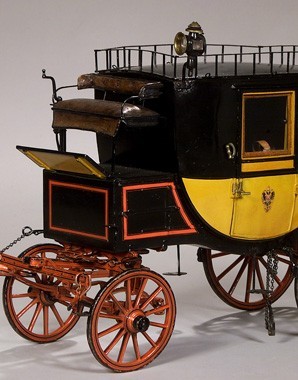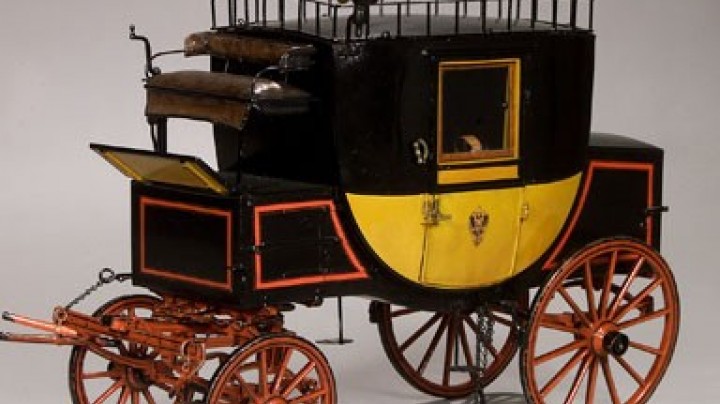Crossing Borders
‘If you want to go walking, you must first ask for passports.’ Metternich’s police system paid particularly detailed attention to the movement of foreign travellers.
To cross the borders of the Monarchy or those within the Crown Lands, travellers required appropriate documents. Since 1792, immediately after the French Revolution, many decrees relating to the supervision of travellers were issued to keep potential troublemakers out and to prevent conspiracies and the risk of civil war and revolution. Under Metternich an ever denser network developed for the control of ‘aliens’. An attestation requirement was imposed on foreign passport holders; henceforth they were required to register with the local police authorities and, in the case of Vienna, on their way into the city at the offices located on the Linienwall, the outer line of defence around Vienna. In addition travellers had to report to the authorities at regular intervals. Meticulously planned and authorized travel routes, from which no deviation was permitted, enabled the state to maintain total control. Not even private householders and innkeepers could provide accommodation without first seeing a traveller’s passport. But not all travellers had the same privilege of being allowed to cross borders. Although the Civil Code of 1811 provided for equal treatment of national citizens and aliens, the latter were subject to very strict supervision. Aliens were divided into those who were regarded as ‘well-intentioned, safe’ and those who were held to be ‘ill-intentioned, unsafe’. Travellers from the peripheral areas of the Monarchy were also treated as aliens. But as Austrian subjects they were to be treated with ‘with more consideration and less rigour’. Complete exemption from the pass requirement was granted to couriers who could identify themselves by their official dispatches, and to carters and inhabitants of border areas. Groups with privileges in respect of the pass laws included journeymen, travelling vendors, wholesale merchants and aristocrats over the age of 28. The decree of 1821 listed as unsafe
"foreigners arriving with peep-shows, barrel organs and other musical devices, travelling players and mountebanks, puppeteers, conjurors … presenters of so-called ‘prodigies of nature’ such as giants, dwarfs, monsters, Italians and other foreigners with bears, monkeys, dogs and marmots."
Such classifications were recorded precisely in charts, providing typological patterns of the ‘indigenous’ and the ‘alien’. In contradistinction to the ‘indigenous’ (i.e., the ‘Self’), there arose the notion of the wild, uncivilized and non-identical – the ‘Other’.















